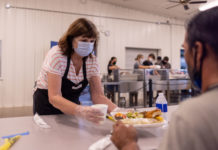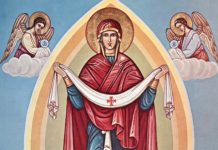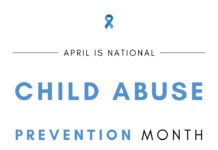There’s an open house Saturday morning that’s probably like no other. If you attend, you’ll likely leave thinking that today’s youth are making the world a better place.
You might also be inspired to support change in your own circle of influence (school, parish, workplace). The open house is for the Miracle League of Arizona. It’s by no means a faith-based operations. As its name implies, it’s focused on minor miracles via a baseball league.
The Miracle League did make headlines in our paper two years ago though. That’s because local Catholic youth volunteer with the league to ensure their peers and athletes a bit older than them have a chance to play baseball despite having a disability.
The open house at the north Scottsdale field will probably be simple. The athletes will play their regular 9 a.m. and 10:30 a.m. games while visitors and fans view enhanced stadium seating and new field turf. It’s the only full service stadium with a custom design rubberized turf, to allow easy maneuverability for wheelchairs and other supportive equipment. A lengthy list of other additions fully accommodate the needs of every player and family for a full day of fun at the ballpark. The open house runs 9 a.m. to noon.
“I guarantee you will smile and leave with a great story,” the press release said.
More than that, this writer hopes you will leave with simple ideas of ways the the world beyond baseball can be more inclusive of those with a disability. That especially means the Church — parishes, schools, affiliated ministries. It’s not that the Church is necessarily negligent, but that an open cattle call for ministry volunteers might be missing some volunteer responses from those with a mental or physical challenge because of simple barriers. It can be hard for those without such challenges to imagine the kinds of accommodations needed.
I’ve been to two diocesan parishes in the last year that made simple accommodations to embrace volunteers with physical limitations, but I can’t help but think it was the strong desire of those with a disability who made the accommodations happen:
- Two parishes included choir members with mobility issues. That person couldn’t “stand” with the rest of the choir, especially on a raised platform, but there was a spot next to the choir for a wheelchair and a microphone was brought to each singer’s level. Better yet, there was still plenty of room for those returning from communion to walk by and hear her gifted voice.
- One of those parishes also welcomed a wheelchair-bound parishioner into its lector ministry. The woman couldn’t climb the two tiny steps toward the pulpit, but two simple accommodations allowed her to be part of the ministry. And she read beautifully. It was all because someone (a previous lector or choir member) brought a music stand to hold the reading and and a microphone so we could hear her.
Most parishes could probably make similar simple accommodations. The first step might be a bulletin invite in your ministry’s section addressed to those with disabilities. Perhaps Catholics who happen to have an array of disabilities are eager to help, but might not think it’s possible because of a simple barrier — like an altar step.
Another way parishes can help make those with a disability feel included is to ensure there’s a way for the hearing impaired to follow along at Mass. I’ve been to too many churches in this diocese where there is no full missal or screen projection to follow along with the readings — only the ability to listen. That’s not reaching out to the universal Church. It forces those with hearing impairments to bring their own Bible or Sunday missal or have the ability to lip read and arrive at Mass early enough to ensure a close seat.
The Catholic Sun has run articles, both its own and those from the Catholic news wire, addressing the idea of accommodations. They might provide further food for thought.






